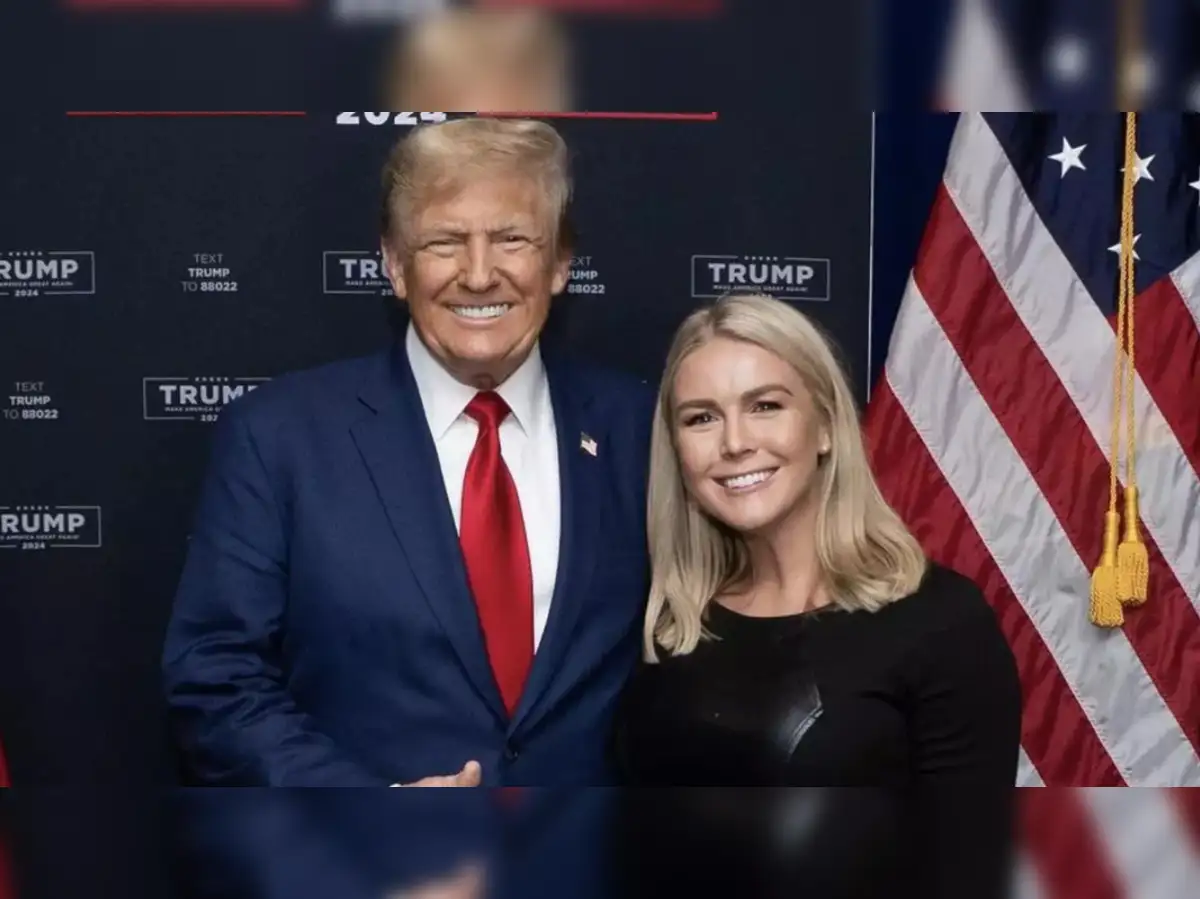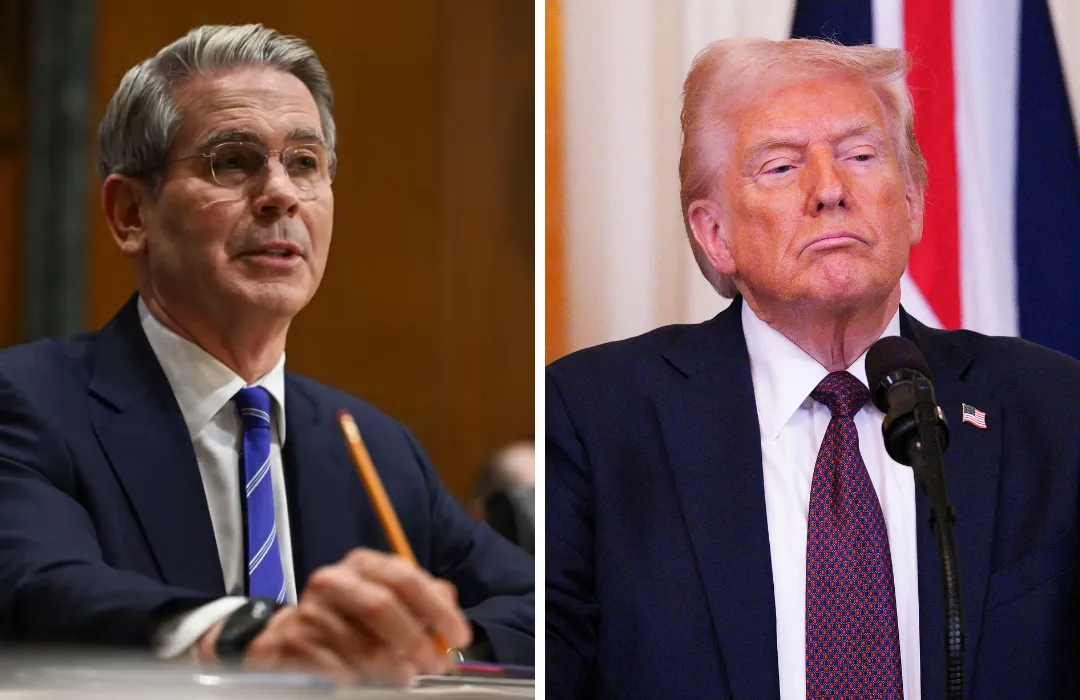
After President Donald Trump’s early morning rant on Truth Social, in which he declared that President Joe Biden's pardons were void, the White House quickly responded, attempting to walk back Trump's claim that the pardons were unconstitutional. Trump’s comments had sparked a wave of confusion and controversy, prompting White House Press Secretary Karoline Leavitt to clarify the president’s remarks later that afternoon.
On Monday afternoon, Leavitt explained that President Trump’s social media post was an attempt to “beg the question,” rather than an official legal assertion. "The president was raising the point that, ‘Did the president even know about these pardons,’” Leavitt said to reporters. She also made an unsolicited remark about President Biden’s cognitive state, claiming, “I think it’s a question that everybody in this room should be looking into.”
Trump’s outburst on Truth Social early Monday morning had declared the pardons issued by Biden as “void, vacant, and of no further force or effect,” arguing that the pardons should be invalid because they were signed using an autopen — an automatic signature device that is used to sign documents electronically.
According to Trump, this device was used to sign Biden’s name on the pardons, meaning that Biden himself did not physically sign the documents, which Trump argued invalidated them.
In his post, Trump went further, saying that not only did Biden not sign the pardons, but more importantly, “he did not know anything about them!” This assertion has been widely criticized, with many questioning the logic behind Trump’s claim.
While presidents often use autopens to sign documents when they are unable to do so in person, such claims from Trump have caused confusion, especially with his suggestion that the use of an autopen makes the pardons illegal.
Trump’s comments were largely in reference to the pardons Biden granted to individuals involved in the investigation into the January 6 Capitol insurrection, as well as to members of his own family. The pardons were granted under Biden’s executive authority, which is outlined in the U.S. Constitution.

Biden’s use of this power to issue pardons for those implicated in investigations related to the insurrection and for his family members has stirred political debate. However, Trump’s challenge to the legitimacy of the pardons is based on his claim that the autopen was used.
In his Truth Social post, Trump also referenced the January 6 Committee, which had investigated his role in the Capitol attack, claiming, “Those on the Unselect Committee, who destroyed and deleted ALL evidence obtained during their two-year Witch Hunt of me, and many other innocent people, should fully understand that they are subject to investigation at the highest level.”
This comment echoed his long-standing narrative of claiming that the investigations into his conduct were part of a political “witch hunt” by his opponents.
Trump also accused the January 6 Committee members of signing documents on Biden’s behalf, alleging that this was done without Biden’s consent or knowledge. His statements are believed to have stemmed from a post made on the social media platform X on March 6 by the Heritage Foundation, which suggested that “WHOEVER CONTROLLED THE AUTOPEN CONTROLLED THE PRESIDENCY.”
This claim, which lacked any solid evidence, appears to have sparked Trump’s latest outburst and his attempts to delegitimize the pardons Biden issued.
In a statement defending his actions at the time, Biden explained the reasoning behind his decision to issue pardons. "I cannot in good conscience do nothing,” Biden said. “Even when individuals have done nothing wrong—and in fact have done the right thing—and will ultimately be exonerated, the mere fact of being investigated or prosecuted can irreparably damage reputations and finances.”
Biden’s remarks suggested that the pardons were intended to protect those who were caught up in investigations that had serious implications for their reputations and lives.

Trump’s statements regarding Biden’s pardons are yet another instance of his efforts to undermine the legitimacy of his successor’s actions, often with little to no factual basis. While Biden’s pardons were legally sound, Trump’s rhetoric surrounding them has raised further questions about his views on executive power, his understanding of legal processes, and his broader relationship with the truth.
Leavitt’s clarification of Trump’s claims was an attempt to minimize the damage caused by his earlier remarks, but the fallout from Trump’s social media posts persists. The White House’s response to Trump’s tirade was a reminder of the ongoing tensions between the Trump and Biden administrations, and how each side seeks to frame the political narrative.
The issue also underscores the partisan divide that continues to define much of the political discourse in the United States. While Trump’s supporters continue to echo his baseless claims about the 2020 election and the investigations into his conduct, Biden’s administration is focused on moving forward with policy and governance despite the ongoing distractions.
It remains to be seen how Trump’s comments about Biden’s pardons will affect public opinion, especially in light of his consistent attacks on the legitimacy of Biden’s presidency. The controversy surrounding the pardons, coupled with the growing focus on issues of executive power and legal authority, could become a defining issue in the coming months.

The question of whether Trump’s rhetoric will have any lasting effect on the legal status of Biden’s pardons is unlikely, as legal experts have largely dismissed Trump’s claims as unfounded. However, the impact on the political landscape, particularly as the 2024 election approaches, could still be significant, as Trump continues to rile up his base and engage in battles over the power of the presidency.


-1746251753-q80.webp)
-1742022856-q80.webp)